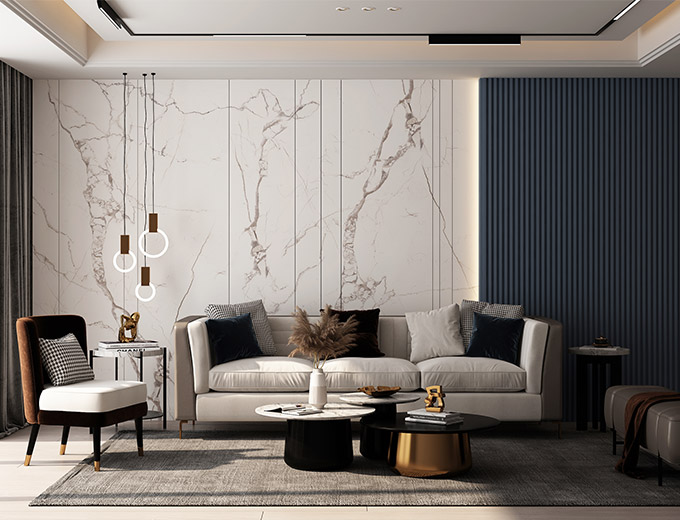Metal Profile 6Y02 Earth Type Light Source Line
Now our company has a variety of light source lines, matching lines with the same color, extremely n...
Integrated wallboard lines can be divided into two categories based on raw materials: metal profile and bamboo lines. Metal profile generally has five colors (matte black, matte titanium gold, matte rose gold, matte iron gray, matte bronzing) and some metal profile that can be coated with the same color, which is also a trend in the future, that is demetalization. Metal profile have metallic properties, are more stable and durable, and are suitable for all application environments. The company's metal line quality is excellent, and the complete supporting system is perfect, which can solve all the wall installation problems, so the metal profile is more popular with customers. Bamboo lines are made of bamboo and wood substrate coating, so they can be matched with all colors and are generally used for decoration. It is also used with high-quality substrate and the same film as the wall panel, the film coating process is also excellent, and the quality of the bamboo lines produced is also relatively high.

Now our company has a variety of light source lines, matching lines with the same color, extremely n...

Now our company has a variety of light source lines, matching lines with the same color, extremely n...

Now our company has a variety of light source lines, matching lines with the same color, extremely n...

Now our company has a variety of light source lines, matching lines with the same color, extremely n...

Now our company has a variety of light source lines, matching lines with the same color, extremely n...

Now our company has a variety of light source lines, matching lines with the same color, extremely n...

Now our company has a variety of light source lines, matching lines with the same color, extremely n...

Now our company has a variety of light source lines, matching lines with the same color, extremely n...

Now our company has a variety of light source lines, matching lines with the same color, extremely n...

Now our company has a variety of light source lines, matching lines with the same color, extremely n...

Now our company has a variety of light source lines, matching lines with the same color, extremely n...

Now our company has a variety of light source lines, matching lines with the same color, extremely n...


.jpg?imageView2/2/format/jp2)





©2022 Zhejiang Insoul Household Co., Ltd. All rights reserved 浙ICP备2021010170号
• Privacy Policy
• Store Policy
• Terms & Condition

pvc marble sheet (uv) supplier